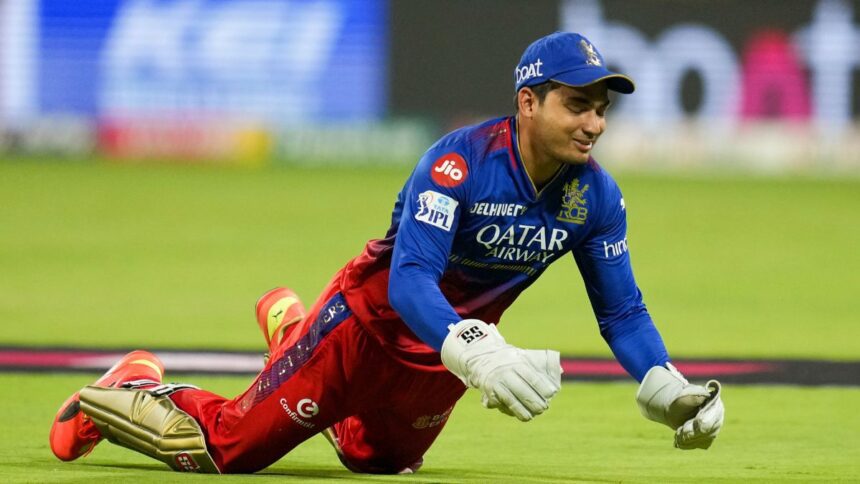Anuj Rawat’s Dilemma: Off the Field Controversy in Indian Cricket
Indian cricket is no stranger to controversy, and the latest incident involving Delhi’s wicketkeeper-batter Anuj Rawat is drawing significant attention. As teams prepare for the second phase of the Ranji Trophy, scheduled to commence on January 23, Rawat has been caught up in a dispute over his decision to skip the Delhi cricket team’s training camp at the Kotla to attend the Gujarat Titans’ pre-season training in Surat.
Background
The Ranji Trophy is India’s premier first-class cricket tournament, serving as a platform for players to showcase their talent and potentially earn selection for the national team. In preparation for the tournament, state associations organize training camps for their players. Rawat’s choice to attend an IPL franchise’s training camp raises questions about commitment to domestic cricket and the protocol players must follow when considering participation in such events.
The Incident
Rawat’s attendance at the Gujarat Titans’ camp was unapproved, as confirmed by DDCA Secretary Ashok Sharma. He pointed out that Rawat did not seek prior permission from the Delhi and District Cricket Association (DDCA) to miss the ongoing Ranji Trophy camp. Sharma stressed the importance of adhering to state association protocols: “He needs to take permission from the state association. I don’t know who gave him the permission to skip the Ranji Trophy camp,” he stated.
This isn’t the first time such an incident has occurred. Players like Shreyas Iyer and Ishan Kishan lost their BCCI central contracts last year for skipping domestic commitments to attend IPL training camps. The governing body of cricket in India emphasizes the necessity for players to prioritize domestic cricket commitments, especially when selection for national duties is at stake.
Comparing Cases: Ishant Sharma
Interestingly, the case of Ishant Sharma, Rawat’s teammate, adds another layer to this unfolding drama. Ishant also attended the Gujarat Titans’ camp but informed the DDCA that he was stepping away from red-ball cricket. Because he opted out of playing Ranji Trophy, he was not required to seek permission from the DDCA. Sharma highlighted the difference by stating: "Ishant’s case is different as he doesn’t need DDCA’s permission since he doesn’t play Ranji Trophy."
This distinction raises questions about the rationale behind prioritizing IPL participation over state training camps. When players opt out of domestic cricket, they risk not only their immediate playing opportunities but also their chances of national selection.
Implications for Anuj Rawat
As Rawat faces potential disciplinary action for his decision, it brings forth a crucial discussion about player autonomy versus accountability. With a framework that seemingly allows for conflicts between personal ambitions (like participating in the lucrative IPL) and the responsibility to represent state teams, the stakes are high.
A senior DDCA official revealed there were no requests from Rawat to join the IPL camp. This absence of communication leaves the association with little choice but to hold him accountable for his actions.
The Bigger Picture
As the IPL continues to grow in stature and financial allure, maintaining a healthy relationship between domestic and franchise cricket remains essential. The increasing tension between these two realms can lead to significant ramifications for players’ careers.
Rawat’s situation serves as a reminder for aspiring cricketers of the importance of balancing personal ambition with the expectations of representing their home teams. As they navigate their careers, the need for clear communication and adherence to protocols is paramount.
Conclusion
As Indian cricket evolves and franchises like the Gujarat Titans gain prominence, ensuring that young talents like Anuj Rawat understand their obligations becomes critical. This incident not only underscores the necessity for adherence to protocols but also illustrates the growing complexity of a cricketer’s commitments in the modern game.
With the Ranji Trophy poised to begin, how Rawat’s situation unfolds will likely set a precedent for future conduct among players navigating the dual demands of domestic and franchise cricket. The cricketing community will be watching closely, eager to see how the DDCA and Rawat handle the implications of this decision and what repercussions, if any, will follow.









